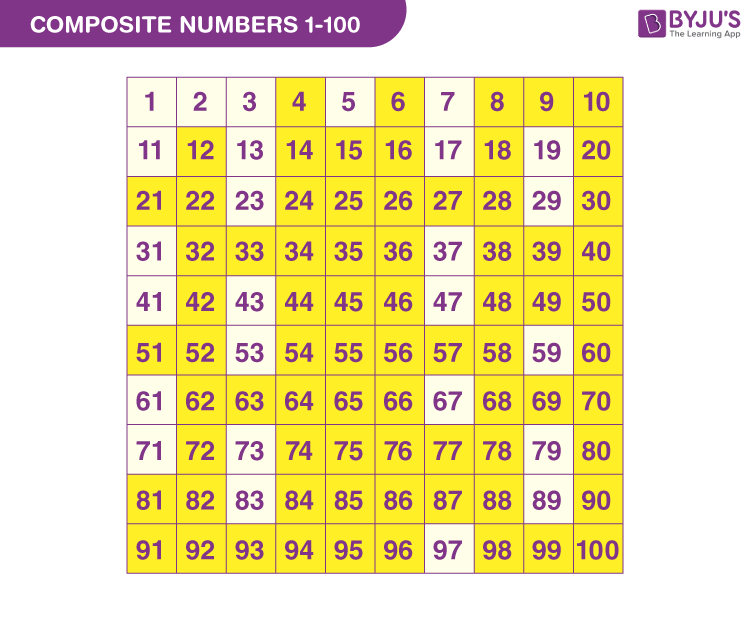In mathematics, a composite number is a positive integer that has at least one factor other than 1 and itself. In other words, a composite number is a number that can be expressed as the product of two or more smaller natural numbers. For example, the number 12 is a composite number because it can be factored as 12 = 2 × 6.

Image: en.wikipedia.org
A prime number, on the other hand, is a positive integer that has exactly two factors: 1 and itself. For example, the number 7 is a prime number because it can only be factored as 7 = 1 × 7.
No Composite Number Can Have Three Factors
It is impossible for a composite number to have three factors. This is because if a number has three factors, then it can be expressed as the product of two factors, which would make it a prime number.
For example, the number 12 has three factors: 1, 2, and 12. However, 12 can also be expressed as the product of two factors: 2 and 6. Therefore, 12 is not a composite number.
General FAQ
Q: What is a composite number?
A: A composite number is a positive integer that has at least one factor other than 1 and itself.
Q: What is a prime number?
A: A prime number is a positive integer that has exactly two factors: 1 and itself.
Q: Can a composite number have three factors?
A: No, a composite number cannot have three factors.

Image: mungfali.com
A Composite Number Cannot Have Three Factors
Conclusion
In summary, no composite number can have three factors because if it did, then it would be a prime number.
I hope this article has helped you to learn more about composite numbers and prime numbers.